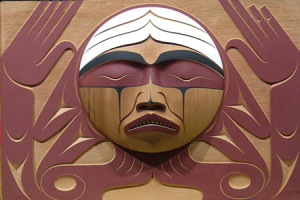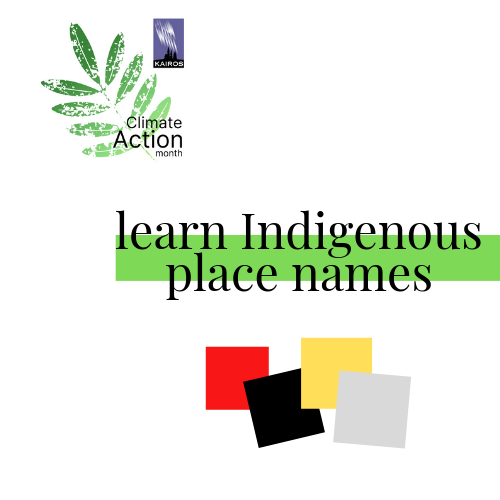Climate Action Month Day 9: Indigenous Rights week

Indigenous rights are central to Climate Action Month because Indigenous people have long been at the forefront of the environmental movement in Canada and around the world. Indigenous identities are often based on relationships to the land, and Indigenous peoples are disproportionately facing the consequences of climate inaction.
Today’s resource: These thoughts are reflected in today’s resource written by Eriel Tchekwie Deranger.
“Last night as I drifted to sleep… my heart hurt — I had nightmares and tossed and turned wondering how we got here. Not just in Alberta, but in the US, in Brazil, and all over the world – fascism and hate is on the rise. The sacrifice for ‘their’ rise will be the people on the frontlines fighting to protect the natural world, and all life will suffer if we don’t stand up.”

Research and learn about the Indigenous place names of natural landmarks in your area.
Resulting from the colonization of Turtle Island, many Indigenous place names were replaced with English and French names. The use of Indigenous names helps to keep alive the history, stories, and teachings of Indigenous peoples. According to the United Nations Educational, Scientific, and Cultural Organization (UNESCO), three-quarters of living Indigenous languages in Canada are endangered. (Source: UNESCO)
